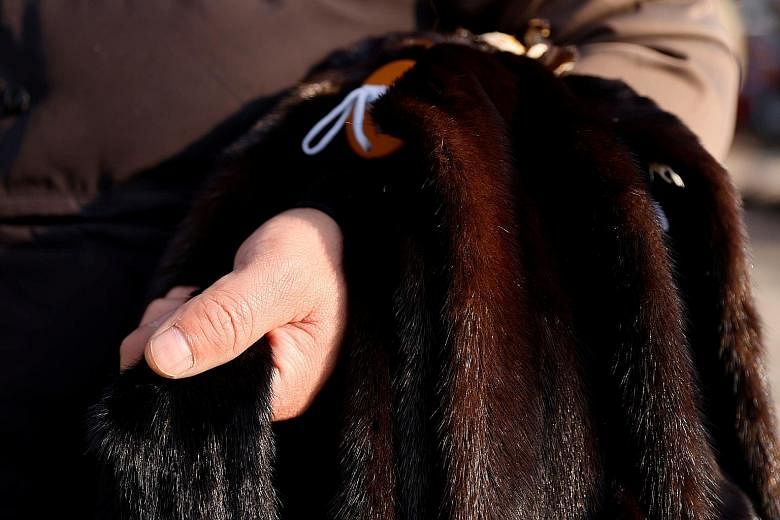SHANGHAI • China and its neighbours must not only crack down on wildlife trade but also shut legal loopholes that allow disease-prone species to be farmed, experts said after an investigation team concluded that Covid-19 most likely originated in animals.
A study, published on Tuesday, which was led by the World Health Organisation (WHO), said it was "likely to very likely" that Sars-CoV-2 - the virus that caused the current global pandemic - was introduced to humans from bats via an intermediary species, with wildlife farming playing a crucial role.
Chinese animal disease expert Tong Yigang, who was involved in the joint study, said the findings vindicated Beijing's decision last year to ban trade in wildlife for human consumption.
But the report also drew attention to the wildlife farms still allowed to operate legally, serving the traditional Chinese medicine industry and the fur trade - and creating more spillover risks.
"With farms you have a large pool of animals that are more or less genetically homogeneous, where a virus can easily evolve," said Dr Christian Walzer, chief veterinarian at New York's Wildlife Conservation Society.
China tested thousands of animal samples to trace the coronavirus' origins, but the study said more investigations are required. It also recommended surveys at mink and raccoon dog farms, which China still allows even though they are infection-prone.
"Cramming millions of animals together in these abusive industries creates a perfect petri dish for pandemics, and unless we ban farming for fur... we will continue to play Russian roulette with global public safety," warned Dr Peter Li, China expert at Humane Society International.
Regulatory gaps, lax enforcement and transnational trafficking gangs have allowed the wildlife trade to continue, experts said.
Pangolins, an endangered mammal identified as a potential intermediary species for Sars-CoV-2, remain a major prize.
Though China has since cracked down on trafficking, activists complain that punishments remain uneven: In a recent case, traffickers caught on Hainan island were given only relatively small fines.
Foreign traffickers also remain in operation. A special economic zone in the border district of Mong La in Myanmar, owned by Chinese businesses, has long been a source of pangolin scales delivered into China.
"There's no real government control there in Mong La," said Dr Chris Shepherd, executive director of the Monitor Conservation Research Society, who studies illegal wildlife trafficking. "There's no enforcement of any kind."
He added: "In many places, wildlife trading isn't seen as a priority or even as something that is necessarily wrong, and we are suffering a pandemic because of it."
China says the original spillover event could have occurred beyond its border, but critics say wildlife trading networks in Myanmar and Laos would not exist without Chinese demand and Chinese investment.
Meanwhile, the experts who released the initial WHO study will follow up on the report, but details are still not set, WHO director-general Tedros Adhanom Ghebreyesus told a news conference on Thursday.
"There will be follow-up assessments, that's what we expect," he told an online briefing, adding that "engagements" will start as soon as possible.
Data was withheld from investigators who travelled to China to research the origins of the epidemic, Dr Tedros had said on Tuesday when the report was released.
REUTERS

